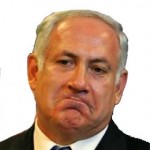Monday
Mar222010
Israel-US: Four Palestinians Killed as Netanyahu Goes to Washington
 Monday, March 22, 2010 at 0:01
Monday, March 22, 2010 at 0:01  The death toll so far is four Palestinians. On Sunday, two farmers, who allegedly attacked Israeli soldiers with pitchforks near the West Bank city of Nablus, were shot dead. Earlier Sunday, a 19-year-old Palestinian died of wounds after he reportedly opened fire on Israel Defense Forces during a demonstration in the south of Nablus. On Saturday, a 16-year-old died after being hit in the heart by a rubber-coated bullet fired by Israeli troops.
The death toll so far is four Palestinians. On Sunday, two farmers, who allegedly attacked Israeli soldiers with pitchforks near the West Bank city of Nablus, were shot dead. Earlier Sunday, a 19-year-old Palestinian died of wounds after he reportedly opened fire on Israel Defense Forces during a demonstration in the south of Nablus. On Saturday, a 16-year-old died after being hit in the heart by a rubber-coated bullet fired by Israeli troops.Middle East Inside Line: Gaza is Boiling, Israel-Palestine Negotiations, Netanyahu to Washington
Meanwhile, Prime Minister Benjamin Netanyahu is leaving for Washington on Sunday night. Earlier Sunday, at his weekly Cabinet meeting, Netanyahu said that the policy on building in East Jerusalem has not changed in Israel's history and that he has informed the US administration of that in writing "Construction in Jerusalem is like construction in Tel Aviv and we have clarified that for the American government."
According to The Sunday Times, in return for his "promised gestures" towards Palestinians, Netanyahu will use a visit to Washington this week to press the U.S. to release advanced weapons, including sophisticated "bunker-buster" bombs needed to break through to Iran's nuclear enrichment installations, many of which are buried underground.
So, what are these "gestures?" Let's recall: suspending but not stopping the construction in East Jerusalem, the release of hundreds of Fatah-affiliated prisoners, the easing of the blockade on the Gaza Strip by allowing the UN to import construction materials, and discussing all core issues during the proximity talks, with the condition of reaching final conclusions only in direct talks with the Palestinian Authority. These are the "gestures" Netanyahu thinks that will bring a "stronger political and military relationship" with Washington.
We do not know what awaits Netanyahu in Washington but Edward Djerejian, former Assistant Secretary of State for Near Eastern and South Asian affairs, offered recommendations to the Obama Administration and revived the question: Should Washington consider suspending its economic aid as leverage? He told Haaretz by phone:
When faced with a similar situation concerning Israeli settlement activity in 1991, President George H.W. Bush and secretary James A. Baker III stopped an additional $10 billion in housing loan guarantees to the Israeli government headed by Likud Prime Minister Yitzhak Shamir. The stakes are equally high today.
If the Israeli-Palestinian negotiations are stalemated, the prospects for violence and instability in the region will be enhanced. The Obama administration should urge both the Israelis and the Palestinians to live up to their obligations in facilitating the onset of direct negotiations on the substantive issues. The sooner, the better.




